#tipulidae
Explore tagged Tumblr posts
Text

crane flies in general are underappreciated animals but the few people who do like them mostly focus on their gangly features and complete lack of self-preservation. i don't mean to draw attention away from those but i personally like their tiny bobbleheads the most, with those bead curtain style antennae and absurd mouthparts
(October 18th, 2024)
58 notes
·
View notes
Text

assorted MSPaint bug doodle commissions for @leafkidsblog @petedavidsonscock and @solidagold
#bflyart#bug doodles#onycophora#collembola#podura#isopod#amblypygi#tipulidae#halictidae#agapostemon#apidae#eucera#xylocopa#anthidium#megachilidae#megachile
1K notes
·
View notes
Text
Female crane fly (family Tipulidae) laying eggs. I knew some species lay eggs in soil, but wasn’t expecting it to look this silly 😆
While most crane fly adults don’t feed (they’re not giant mosquitoes!), most larvae eat dead plant matter. Larvae are an important part of the soil ecosystem because they convert organic matter into nutrients that plants and other life forms can use. Crane flys are also an important food source at all stages of their life for everything from spiders to song birds.
#crane fly#tipulidae#diptera#mosquito hawk#gollywhopper#beneficial insects#soil#soil science#ecology#nature#bugs#biodiversity#animals#inaturalist#arthropods#bugblr#entomology#insect appreciation#funny bugs#funny video#needs squeaking bed noises#or dorky music#leather jacket#flies are cool#flies#not all flies are bad#don’t squish bugs#biology nerd#invertebrates
153 notes
·
View notes
Text

I don't really know what's going on here. A big mite (4mm!) feeding(?) on a crane fly(?) larva.
There is a kind of mite - Calyptostoma - that specifically parasitises crane flies: the young mites cling to adult crane flies while the adult mites feed on crane fly larvae - like this?
I haven't found much information on them yet, though.
iNaturalist observation 267018079
#arachnid#arachnophobia tw#mite#tipulidae#calyptostoma#inaturalist#parasite#nature photography#argyll#scotland#uk
33 notes
·
View notes
Text
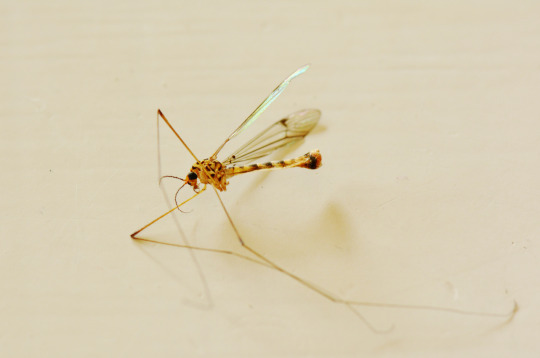
#crane fly#tipulidae#tipuloidea#diptera#insect#insects#entomology#photography#photographers on tumblr#stes moteh#bug#bugs#nikon d5200#invertebrates
8 notes
·
View notes
Text
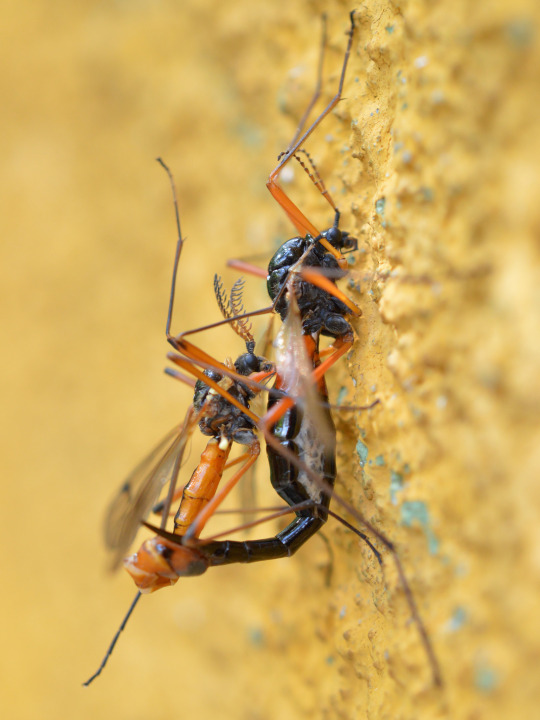
Giant Sabre Comb Horn Cranefly (Tanyptera atrata)
7 notes
·
View notes
Text
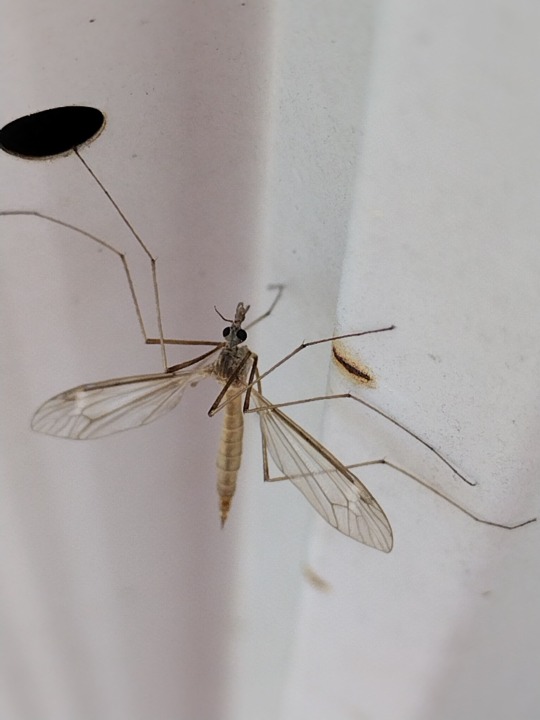
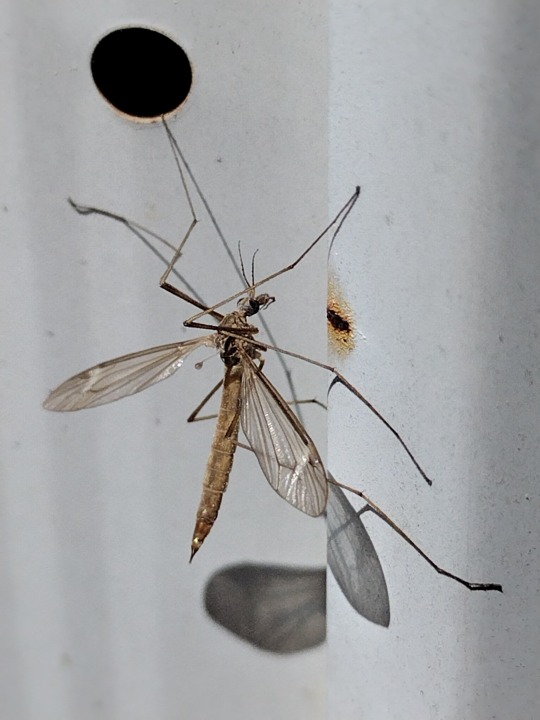
[PHOTOS TAKEN: APRIL 6TH, 2024 | Image IDs: Two photos of a brown and black crane fly with translucent wings on a white metal surface /End IDs.]
#tipulidae#crane fly#crane flies#Flies#Fly#Diptera#insect#insects#Bug#bugs#Bugblr#invertebrates#entomology#arthropods#photo#photos#Wasp House Sights
52 notes
·
View notes
Text
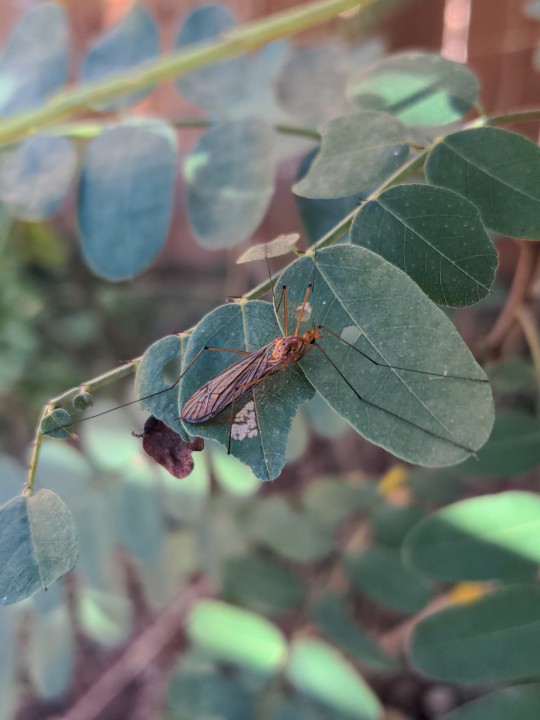
Nephrotoma suturalis ssp. suturalis on Amorpha fruticosa / Eastern Seamed Tiger Crane Fly on Bastard Indigobush
#Nephrotoma suturalis#Nephrotoma#Tipulidae#Amorpha fruticosa#Amorpha#Fabaceae#Tiger Crane Fly#Bastard Indigobush#False Indigobush#Indigobush#Native insects#Insects#Plants#Foliage#Native plants#Nature photography#photography#photographers on tumblr#Durham#Durham NC#north carolina#Home#🌺🌻#Nephrotoma suturalis ssp. suturalis#Eastern Seamed Tiger Crane Fly
3 notes
·
View notes
Text
Limnophila é um gênero de moscas-guindaste limoniídeos da família Limoniidae. Existem pelo menos 280 espécies descritas em Limnophila. As moscas-guindaste são insetos da família Tipulidae, também conhecidas como típulas ou mosquitos-gigantes. São insetos inofensivos, de pernas longas, que se assemelham a grandes mosquitos, se alimentam de néctar ou seiva, e não transmitem doenças.
#limnophila#limnoniidae#moscas#flies#fly#insect#animal#animais#animals#biology#biologia#invertebrates#invertebrados#insects#insetos#tipulidae
2 notes
·
View notes
Photo

Fossil Insect Cranefly Eocene Colorado USA Genuine Specimen w/ COA
Own a remarkable piece of prehistoric history with this genuine Cranefly fossil from the Eocene Epoch, discovered in Colorado, USA. This finely preserved specimen offers a fascinating glimpse into the insect life of the Eocene, approximately 56 to 33.9 million years ago.
Craneflies, belonging to the family Tipulidae, are often mistaken for large mosquitoes but are harmless. Their delicate wings and long legs make them distinctive and aesthetically captivating fossil subjects. This fossil clearly shows the graceful features that define craneflies, beautifully embedded in a natural matrix.
Key Features:
Species: Cranefly (Family: Tipulidae)
Geological Period: Eocene
Location Found: Colorado, USA
Authenticity: All of our fossils are 100% genuine specimens and come with a Certificate of Authenticity.
Sizing: Please refer to the listing photo for scale. The scale cube shown is 1cm for reference.
What You See Is What You Get: The photo in the listing is of the exact specimen you will receive.
This fossil has been carefully selected for its scientific interest and visual appeal. It's an excellent addition for collectors, educators, and anyone with a passion for Earth's ancient past. Whether you're starting a fossil collection or enhancing an existing one, this Cranefly specimen is a unique and valuable piece.
Fast shipping and careful packaging ensure that your fossil arrives safely and ready for display.
Add this beautiful, authentic Cranefly fossil to your collection today!
#fossil insect#cranefly fossil#eocene fossil#colorado fossil#genuine fossil#fossil certificate#tipulidae#prehistoric insect#fossil specimen#fossil collection#authentic fossil#paleoentomology#natural history#fossil gift#insect fossil display
0 notes
Text
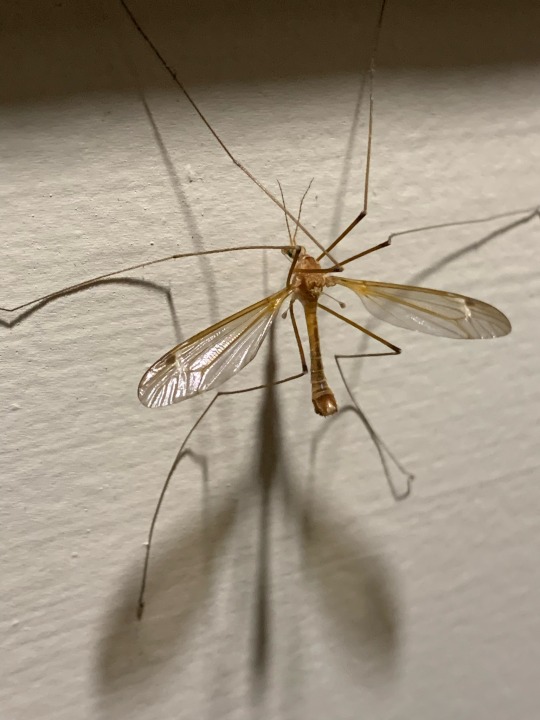
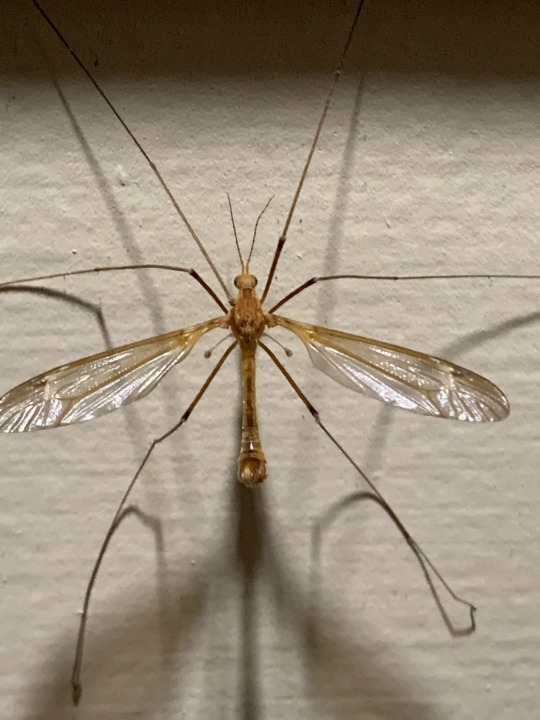
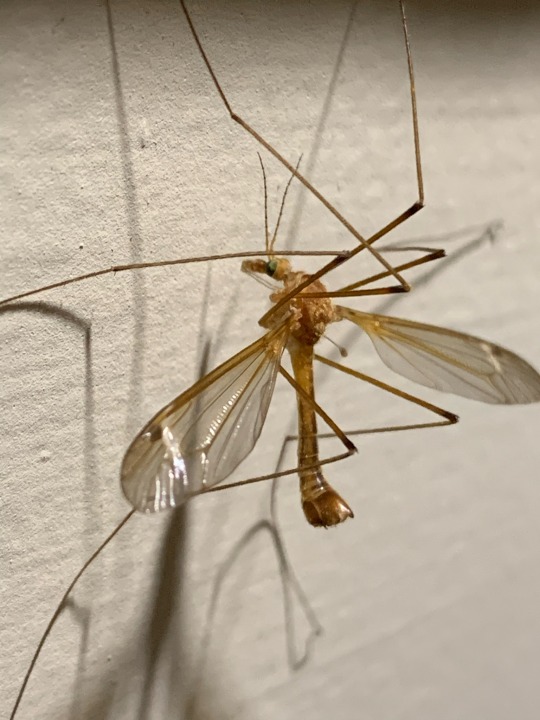
June has a loooot of catching up to do on posting... (´∀`•) but she saw a Tipulid!!! ₍₍⚞(˶˃ ᵕ ˂˶)⚟⁾⁾ look at the little halteres...!
0 notes
Text
#2401 - Austrotipula hudsoni

New Zealand's largest fly, with a body length exceeding 3cm. Increasingly rare, and considered endangered, but still found in wet forests south of Rotoroa. The larvae are thought to live along streams in forests, and have been found in moist earth under rotting logs, and the adults don't seem to travel far.
McCluggage Tunnel, Inland Taranaki, New Zealand
#austrotipula#tipulidae#crane fly#new zealand fly#mccluggage tunnel#Whangamōmona#Whangamomona#pohokura
1 note
·
View note
Text
Tipulidae
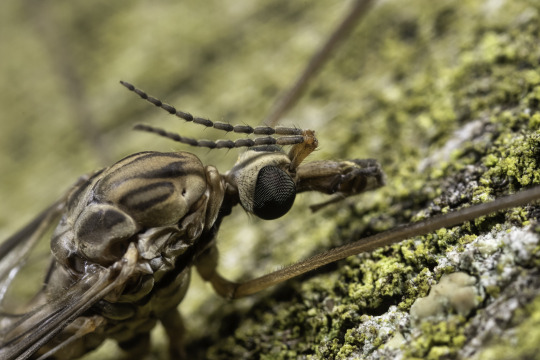
Classification:
Règne: Animalia
Embranchement: Arthropoda
Classe: Insecta
Ordre: Diptera
Famille: Tipulidae
Descriptif et anecdotes:
La tipule, souvent confondue avec un moustique géant, est en réalité un diptère appartenant à la famille des Tipulidae. Contrairement à ce que beaucoup pensent, elle est inoffensive pour l'homme car elle ne pique pas. Cette photo en gros plan nous révèle toute la complexité et la beauté méconnue de cet insecte.
Les tipules sont reconnaissables à leurs longues pattes fines et fragiles, qui se détachent facilement. Cette caractéristique leur vaut le surnom peu flatteur de "patte-longue". Leurs antennes, bien visibles sur cette image, sont segmentées et parfois aussi longues que le corps de l'insecte, ce qui est caractéristique des membres de cette famille.
Leurs yeux composés, qui semblent recouverts d'un maillage fin, leur fournissent une excellente vision panoramique. Cet atout est crucial pour détecter les mouvements autour d'eux et éviter les prédateurs. La tipule utilise ses ailes longues et fines pour se déplacer, préférant souvent marcher à voler, surtout lorsqu'il s'agit de naviguer entre la végétation dense.
En entomologie, la tipule est souvent étudiée pour son rôle écologique dans le recyclage des matières organiques. Les larves, appelées "ver gris", sont détritivores et jouent un rôle essentiel dans la décomposition et le recyclage des nutriments dans le sol. Cependant, elles peuvent devenir nuisibles pour l'agriculture en consommant les racines des plantes cultivées.
#macro#macrophotographie#macrophotography#micro world#nature#wildlife#wildlife photography#close up#animal photography#tipulidae#dipterous#crane flie
0 notes
Text
my best guesses:
1. male spring fishfly (Chauliodes pectinicornis)
2. female fishfly (Chauliodes pectinicornis)
3. crane fly (Tipula furca)
4. southern emerald (Synchlora frondaria)
5. moth (genus Athetis?)
the fishflies are a great find!
#megaloptera#corydalidae#chauliodes#diptera#tipuloidea#tipulidae#tipula#lepidoptera#geometridae#synchlora#sorry got carried away#3 orders of insects in this video yayy
65 notes
·
View notes
Note
Have you seen how big crane fly larvae are??? Wow
They can be quite large, yeah! Here's a large crane fly larva (Tipulidae):
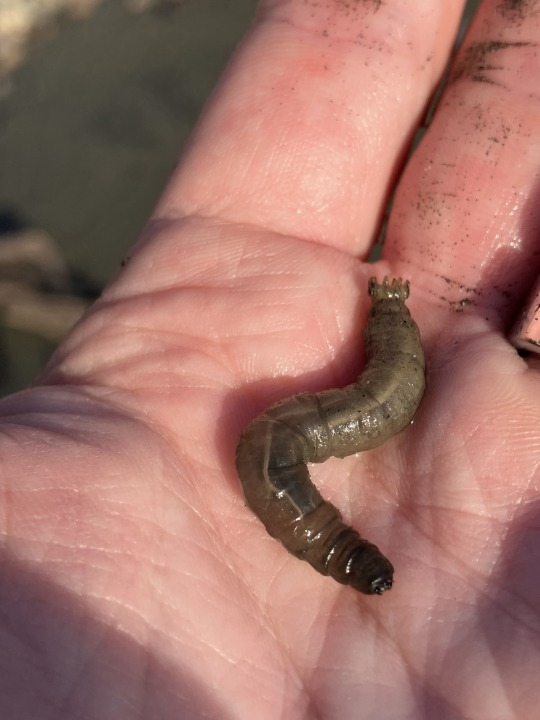
More importantly though some of them have little "faces." Here's a tiger crane fly larva:
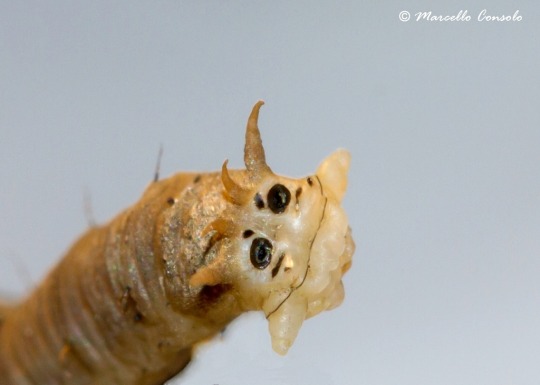
Lol. That's actually his butt I think.
Photos by lumenal and marcello
#corpsegods#insects#bugs#fly#diptera#larva#crane fly#large crane fly#tiger crane fly#leatherjacket#the more you know
386 notes
·
View notes

